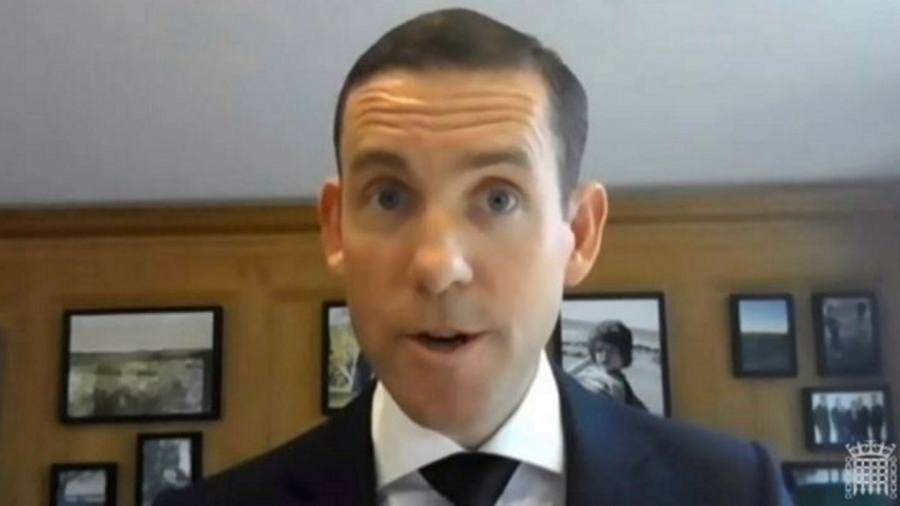
UK regulator investigates collapsed Greensill Capital
The UK financial regulator is “formally investigating” Greensill Capital as documents released by a parliamentary committee showed that former prime minister David Cameron tried to lobby on the company’s behalf 56 times last spring.
The Financial Conduct Authority disclosed the probe of the collapsed supply-chain finance firm in a letter from Nikhil Rathi, the FCA chief executive, to Mel Stride, the Conservative MP who chairs the House of Commons Treasury select committee,
The comments are the first confirmation of involvement by the regulator after Greensill went into administration in March. Rathi said the FCA was co-operating with authorities in Germany, Australia, Switzerland and other countries.
The revelation emerged in a wider release of letters and documents by the committee, including a deluge of chummy text messages from Cameron to government and Whitehall figures in early 2020 begging them to help Greensill.
The FCA is looking at Greensill Capital as well as a separate entity called Greensill Capital Securities, and Mirabella Advisers LLP, a third-party firm that oversaw GCS, Rathi said.
“The failure of Greensill again demonstrates the need for regulators around the world to work closely together to fully assess the risks created by those financial entities that span multiple jurisdictions,” he said.
He added that the FCA became aware of potential financial difficulties at Greensill when the Financial Times reported in May 2020 that a string of its clients had defaulted on their debts in high-profile collapses and scandals.
Greensill Capital’s UK business was only registered with the FCA for anti-money laundering purposes. Mirabella oversaw an entity that arranged deals with clients such as Sanjeev Gupta’s GFG Alliance.
Andrew Bailey, Bank of England governor, said in a submission to the committee that the BoE first became aware of “a potential weakness” at Greensill in March 2020, around the time Cameron started to step up his lobbying activities, but this related to “a possible weakness in controls rather than crystallised financial difficulties”.
He said this information arose from a dialogue with an overseas regulator relating to “a PRA [Prudential Regulation Authority] regulated institution which was already subject to intensive supervision.” He said “the information received by the PRA in March 2020 was limited”.
The messages from Cameron to a slew of senior ministers and officials saw the former prime minister lay on the flattery as he sought, unsuccessfully, to change the rules around Covid-19 debt schemes to the benefit of his employer, Greensill Capital.
The release of the messages by the Treasury select committee show how Cameron, who signs off his messages “DC”, lobbied an even wider array of government figures in March and April last year at the start of the pandemic than previously thought.
In a message to chancellor Rishi Sunak on April 3, 2020, Cameron praised the chancellor: “You are doing a great job — keep going”. In a text on April 29 last year he said there was huge progress in negotiations between Greensill and the Treasury, “for which many thanks”.
In May, as the Treasury was rebuffing Greensill’s requests, Cameron tried to lean on Sunak again, saying: “My apologies for troubling you again. We should have got to this answer faster.” In all, Cameron sent a dozen messages to Sunak.
Newspapers had already revealed that Cameron messaged three Treasury ministers on behalf of Greensill as well as a Downing Street special adviser. The documents showed he also reached out to Nadhim Zahawi, who was then a business minister.
He also messaged Michael Gove, Cabinet Office minister, about the Greensill situation. “Am now speaking to Rishi first thing tomorrow. If I am still stuck, can I call you then? Thank! DC.” In a separate message he praises what a “great job” Gove is doing.
He also wrote to Richard Sharp, a banker who was advising Sunak, and is now chair of the BBC, to complain about slow progress. “I fear ministers may need to get stuck in a bit more,” he complained.
Cameron tried to use his old working relationships with government figures to help Greensill, as can be seen in a message to Sir Tom Scholar, the permanent secretary at the Treasury. “See you with Rishi’s for an elbow bump or foot tap. Love Dc,” [sic] he said. In another message he told Scholar “glad you are at the helm.”
In one week in March, as he messaged Scholar almost daily, he apologised: “One last point then I promise I will stop annoying you.” The next day, frustrated, he said: “Am now calling CX (Sunak), Gove, everyone.”
A separate submission to the committee by the Treasury said that it had done a detailed assessment of the Greensill proposal, concluding it did not provide value for money.
Furthermore, two other supply chain finance providers had confirmed that they were not interested in using the proposed scheme.
However, the department did put forward a call for evidence on May 1 last year, suggesting that supply chain finance providers could be brought into the scope of the Bank of England’s Covid Corporate Financing Facility (CCFF) — in line with Greensill’s request. On June 26 the Treasury concluded, after widespread feedback, that the initiative would not bring enough benefits to UK business.
The Treasury admitted that a “small number of junior officials” were engaged part-time over three months in examining the proposals.
Cameron is scheduled to appear before the Treasury select committee on Thursday.
Stay connected with us on social media platform for instant update click here to join our Twitter, & Facebook
We are now on Telegram. Click here to join our channel (@TechiUpdate) and stay updated with the latest Technology headlines.
For all the latest Education News Click Here
For the latest news and updates, follow us on Google News.

